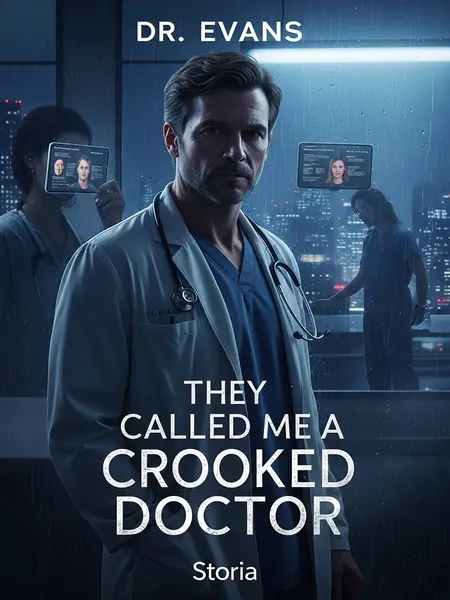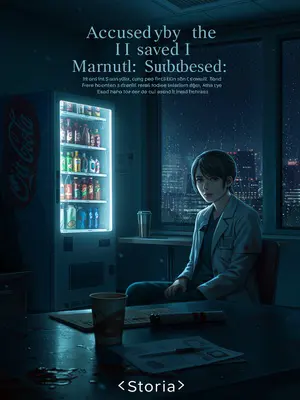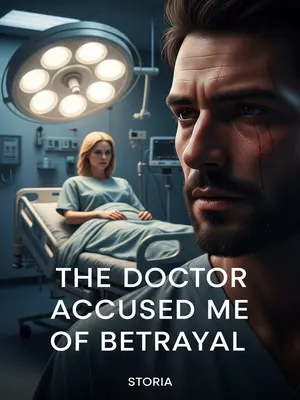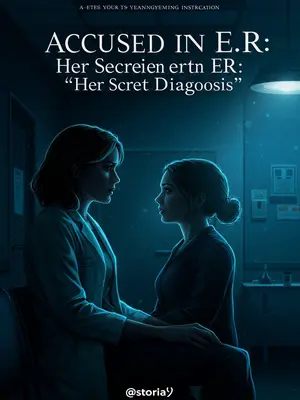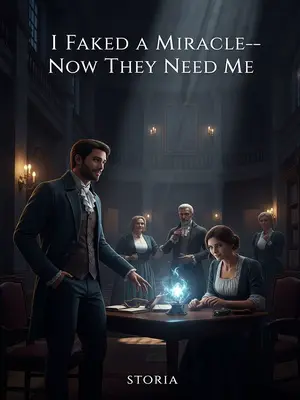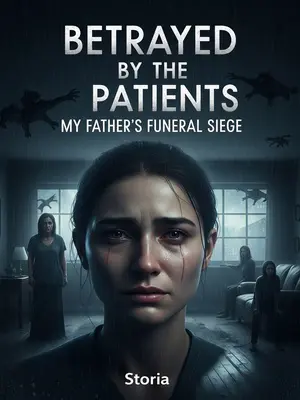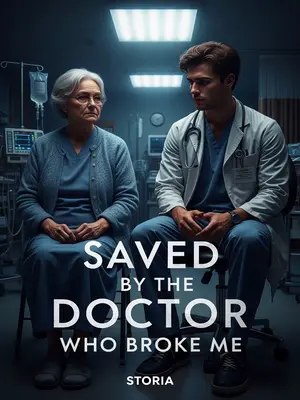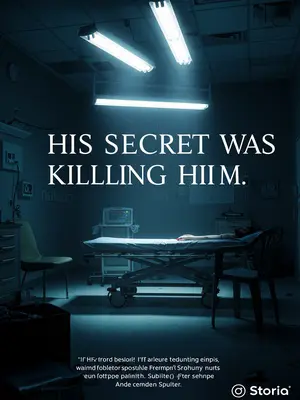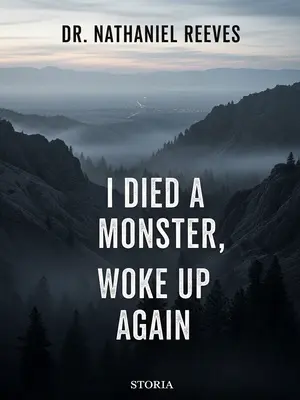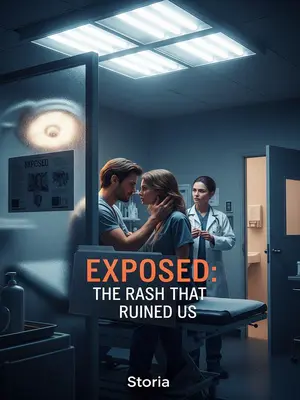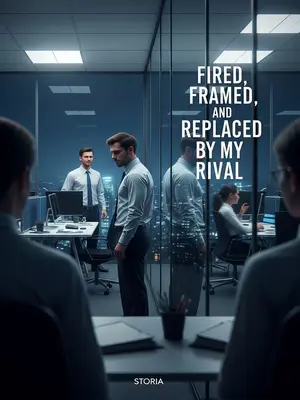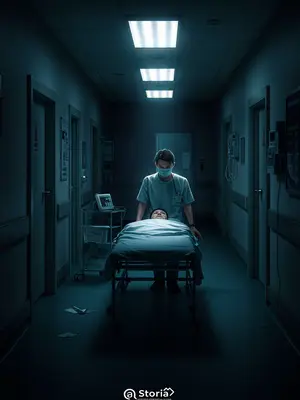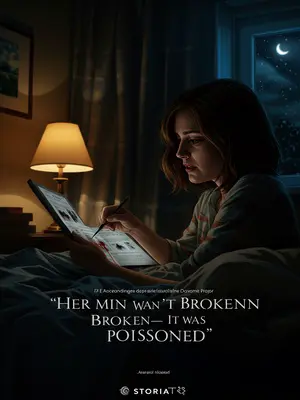Chapter 2: Betrayed by a Viral Lie
“Could you fly out and help?”
I checked my schedule. “No, I’ve been slammed for weeks. This weekend I promised my daughter we’d have a daddy-daughter day.”
My eyes flicked to the fridge, where my daughter’s crayon drawing was stuck with a magnet—me with a stethoscope, her in a princess dress. I’d missed too many weekends already. The promise wasn’t just for her; it was for me, too. Sometimes, being a good dad means saying no, even when it stings.
After thinking a bit, I offered another solution. “Then have her go to the top hospital in Columbus. The surgery isn’t easy, but I’m not the only one in the country who can do it. No need to insist on me.”
I rattled off a couple names—old colleagues who’d trained with us, surgeons I’d trust with my own family. Columbus was just a few hours away, and their hospital had the gear and the staff to handle a tough case. I hoped Chase would take the out. Maybe this time, I could stay home.
Chase pressed on: “Who else can do it like you, man? Plus, Columbus costs money, too.”
“Come on, help me out. You don’t want to let down Dr. Walker, do you?”
He knew just how to get to me. Mentioning Dr. Walker was like playing the ace card—our old mentor, the man who taught us everything, who’d given us our shot. There was a weight to that name, a sense of duty that never really faded. I sighed, already knowing I’d cave. Some things never change.
Trying to save even the patient’s travel expenses, Chase actually made me laugh. But once he brings up our mentor, I know I have to agree. If I refuse, he’ll just call Dr. Walker’s wife, and in the end, Dr. Walker will send me anyway. That trick always works. No choice—he really is a smooth talker. Ha. You’d think I’d learn by now.
It was almost funny, the way he played us all. I could just picture Mrs. Walker calling me, her voice sweet as pie, making it sound like I was doing her a favor instead of the other way around. Chase knew the system, and he worked it like a pro. I couldn’t even be mad.
In the end, I squeezed my schedule, promised I’d fly over Friday night, do the surgery early Saturday, and fly back right after. It was going to be tight, but I’d make it work. I always did.
I texted my wife, rearranged my clinic, and booked the last seat on a red-eye. The plan was tight, but I figured I could still make it home in time for pancakes with my daughter. I packed light—just scrubs, a toothbrush, and a change of clothes. No sense making it harder than it had to be. The scent of jet fuel and that too-bright airport lighting already lingered in my mind.
As soon as I landed, Chase was waiting at the curb.
He was leaning against his old pickup, coffee in hand, grinning like we were heading to a tailgate instead of a hospital. The air was sharp, the kind of cold that wakes you up fast. He tossed my bag in the back and started filling me in before I’d even buckled my seatbelt. The familiar smell of truck leather and stale coffee filled the cab.
He started explaining the patient’s situation right away, flipping through pathology slides on his iPad as we drove.
We rolled through quiet streets, past shuttered stores and empty lots. Chase balanced the iPad on the dash, swiping through images as he talked. He had the details down cold, but I could see the nerves in his eyes. The patient’s chart was complicated—age, comorbidities, a dozen little red flags. I nodded along, asking questions, making mental notes. The heater rattled in the background.
Honestly, the surgery wasn’t tough, but for a small-town hospital, it was a different story. Joint surgery, especially knees, is Dr. Walker’s specialty, and all of us from his group are considered leaders in the field. Given this patient’s case, only Chase could even attempt it at their hospital, but with all her underlying issues, he wasn’t confident.
The OR was smaller than what I was used to, the lights a little dimmer, the equipment a little older. But the staff was sharp, eager to learn. I felt a swell of pride—Dr. Walker’s legacy lived on in all of us. For Chase, this was more than just a surgery; it was a test of everything we’d been taught. I could see the weight of it in the way he moved.
After changing into scrubs, I led Chase and a few local doctors who wanted to observe into the OR, but we were stopped by the patient’s family at the door.
The hallway was crowded, tension thick in the air. The family clustered near the entrance, eyes wide, voices hushed. As we approached, Frank Dalton stepped forward, clutching a bulging envelope.
“Dr. Evans, Dr. Evans, here’s the four hundred dollars Dr. Morales asked for. I brought it.”
“Just like you said, all in cash—I just pulled it out at the ATM.”
“Please count it. If it’s not enough, I’ll get more.”
Frank’s hands were trembling, the bills fanned out like a poker hand. He looked desperate, his eyes darting from me to Chase, searching for approval. The rest of the family hovered behind him, anxious and hopeful. The air felt charged, heavy with expectation.
With that, the patient’s son, Frank Dalton, tried to shove a wad of bills into my hands. The crisp twenties and fifties were fanned out in his grip.
He pressed the cash toward me, insistent, almost pleading. The smell of fresh bills mixed with the sharp tang of antiseptic, and for a second, I felt like I was in the wrong place at the wrong time. Everything about it felt off—awkward, uncomfortable. Nothing about it felt right.
I quickly pulled my hands back. “Cash is dirty. Give it to me after the surgery.”
I tried to keep my tone light, but my jaw was tight. The last thing I wanted was to contaminate the OR—or myself—before we’d even started. I could feel the other doctors watching, waiting to see how I’d handle it. There was an awkward silence, broken only by the hum of the overhead lights.
Frank ignored me and kept pushing the money into my arms, saying anxiously, “Thank you, Dr. Evans. Everybody says my mom’s surgery can’t be done here, that we have to go to the city. If it weren’t for you and Dr. Morales, we wouldn’t know what to do.”
“My mom’s inside—I won’t feel at ease unless you take it first!”
His voice cracked, raw with worry. I could see the fear in his eyes, how much he wanted to believe this was the answer. It made me pause, just for a second, before frustration started to bubble up again. I glanced at Chase, hoping for some backup.
Looking at my now-stained surgical gown, I scowled and was about to snap, but Chase quickly tried to smooth things over in a low voice: “Just take it, man. He’s worried about his mom. If you don’t, he’ll be a nervous wreck the whole time. The gown’s already dirty—just swap it after.”
Chase’s voice was calm, steady—the voice of reason. He shot me a look that said, Just go with it. I let out a slow breath, biting back my annoyance. Sometimes, you just do what you have to do for the patient, even if it feels wrong.
I kept a straight face and took the money, then went back to re-scrub and change into fresh scrubs. The feel of crisp bills lingered on my palm, and I tried to shake it off as I washed up again.
As I scrubbed in again, I replayed the scene in my head, trying to shake off the bad taste. The nurses pretended not to notice, but I could feel their eyes on me. I focused on the rhythm of washing my hands, letting the hot water and soap scrub away the awkwardness. It was a ritual that always calmed my nerves before a big case.
Luckily, the surgery went perfectly. Relief flooded through me as I finished the last stitch. For a moment, all the tension melted away.
It was textbook—no surprises, no complications. The OR team moved like clockwork. I could see the relief on Chase’s face as we closed up. The patient’s vitals were steady. That familiar rush of satisfaction hit me—knowing we’d given her a real shot at recovery. We did good.
Chase helped tidy up the instruments, grinning: “Only you could pull that off, Doc. I’d never have been that precise. You’re a real pro.”
He clapped me on the back, his smile wide and genuine. There was a spark of pride in his eyes, like a little brother finally catching up to his hero. For a second, the stress melted away, replaced by that old sense of teamwork. We were in sync.
I didn’t show it, but I was secretly pleased. The kid really knows how to flatter. Made me feel like I still had it.
